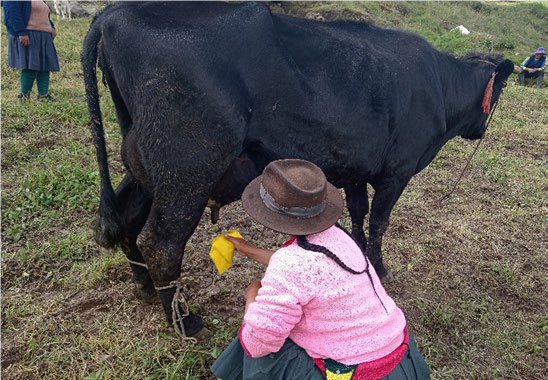
Taking Dairy Farming to the Next Level
“We live off our cheeses, our animals and our crops, and you are teaching us to make a solid business out of what we do,” said Teresa. She’s one of the dairy farmers involved in the latest phase of the Peru Castrovirreyna program, which is taking place in an area called Cocas.
The focus is on improving dairy cow management and boosting the quality of milk and cheeses. The goal is to increase income and reduce anemia and malnutrition among the most vulnerable household members: children and new mothers. Geographically, Cocas is favorable to agricultural production, but malnutrition is still a challenge for many families who lack information about the correct balance of foods and the importance of iron and protein.
Families consume approximately 80% of the crops and 60% of the livestock they grow. The remainder are sold to provide for other needs. Families base their meals on cheese, milk, beans, bell peppers, corn, wheat, and potatoes. Staples like rice, lentils, sugar and oil are either provided by the state or purchased with earnings from the sale of excess production.
When activities first began, a farmer named Espíritu said, “Now we can take advantage of the presence of professionals. With everything they are going to teach us and all their support, we plan to improve our practices so that our families are better off.” Ramiro, another participant, says, “We’ve started putting into practice what they teach us. Our cheeses must be improved. When they are, Cocas will stand out because of our quality products.”
One of the ways producers can improve the value of their goods is by managing their animals in a safe and healthy way and through good food-handling, personal-hygiene and home-hygiene practices. Once all this is achieved, greater income will make it easier for families to gain access to food of higher quality and richer dietary variety. The hygiene practices will also result in better health outcomes for family members.
Ricardo speaks for all as he says, “Our families are going to change the way we live and take care of our livestock to produce more milk and make higher-quality cheese for sale. We are very grateful.”
Peru Castrovirreyna Program
Led by Lutheran World Relief and Local Partner Center for Integrated Development of Communities (CEDINCO)
